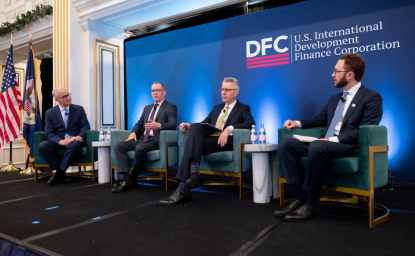As the Trump administration, Congress and governors across the country scramble to manage the coronavirus pandemic and meet urgent needs, it is important to prepare what will be needed to restart the economy. The list of “must dos” for restarting should include steps to make the United States more competitive as it re-emerges from this crisis, as former Treasury Secretary Hank Paulson insightfully argues. Prioritizing and funding programs to upgrade the skills of our workers for an inclusive post-pandemic economy is one of these priority tasks.
It is far from clear how many pre-pandemic jobs will return and how many of them will be eliminated or reshaped as small, medium and large enterprises try to adapt to new circumstances. A just-released Goldman Sachs survey, for example, finds 68 percent of small business owners saying their business models may be changed permanently, while others suggest that there could be a trend to accelerate workplace automation, especially affecting middle- and lower-skilled workers.
The administration, Congress, state and local leaders, the private sector and academia need to start reconceptualizing now, and investing accordingly, so that workers and businesses can rebound and adapt. It is likely that mid- and lower-skilled workers will be among those most in need of support as the economy begins to rebound, as has been the case in earlier recessions and in the first decade of this century, but workers at various skill levels and in different sectors could face major challenges and need to learn new skills.
We don’t know the answers to key questions. Will previous business practices and services return to earlier norms? How will supply chains be reinvented and made more resilient? Will some companies now rely even more on technology than human capital? Will low- and mid-skilled and less-educated workers see their jobs eliminated?
Well before the pandemic, technology had been reshaping workplaces across America, the continent and the globe. Technology and changes in workplace processes have been a major source of job displacement over the past 20 years, and many predict that the pace of change will increase. This has contributed to rising numbers of U.S. workers falling out of the job market and others struggling to learn the new skills needed to have good jobs. Businesses have found it challenging to find skilled employees and develop job training programs that can up-skill their current workforce. Schools and post-secondary educational institutions have scrambled to adapt curriculum to prepare students with skills being sought in the job market and to provide mid-career skills education for workers to advance.
Government programs and private-sector actions so far have been insufficient to effectively meet these needs. Promising efforts are under way, however. The National Skills Coalition, for example, has highlighted U.S. states that apply best practices to address student, worker and business needs in some states that align policies to support those in most need to enter and stay with skills education.
The Trump administration, to its credit, has begun a number of initiatives working with private-sector leaders to address the future of work; Ivanka Trump is a lead spokesperson for this effort. While many European countries have well developed workforce development strategies, elsewhere in North America, Canada is implementing its own ambitious agenda to address workforce development and skills issues. Business leaders and organizations such as the World Economic Forum have been championing for a number of years the idea of a new business model to incorporate skills training and partnerships between business, government and academia to address well the “future of work.”
Sadly, these and other efforts to date have not been sufficient to create the programs, investment and partnerships to move the U.S. or North America to a new model, with practices to lift our workers and our economy to a level of readiness for the changes ahead. Not doing so will increase economic and social woes, and that situation likely will be more dangerous with the workplace shocks from the pandemic.
Thus, while addressing the very serious immediate needs of helping workers, businesses and our economy, Congress and the Trump administration also need to authorize and fund new policies, programs and collaborative mechanisms that bring together government, business, academia and others to assure that our workforce will be well-trained and able to rejoin a post-pandemic economy.
One big opportunity approaches with the implementation of the new United States-Mexico-Canada trade agreement (USMCA), which will take effect on July 1. USMCA provides a framework for re-energizing the massive continental trading and production marketplace that supports some 12 million jobs in the U.S. economy alone. The three countries should turn the North American Competitiveness Committee created by USMCA into a driver for reforms to make North America more competitive with other global producers. Part of that must be finding new ways to invest in and strengthen workforce skills investments and programs across Canada, Mexico and the United States. The Woodrow Wilson Center recently presented recommendations to do just that.
Let’s use the urgency of the moment to invest wisely in the workforce development that will support our workers and our economy to rebound from the pandemic.
Author

Former Career Ambassador to Afghanistan, Argentina, and Mexico; Distinguished Diplomat in Residence, School of International Service, American University

Mexico Institute
The Mexico Institute seeks to improve understanding, communication, and cooperation between Mexico and the United States by promoting original research, encouraging public discussion, and proposing policy options for enhancing the bilateral relationship. A binational Advisory Board, chaired by Luis Téllez and Earl Anthony Wayne, oversees the work of the Mexico Institute. Read more

Explore More
Browse Insights & Analysis
Canada’s Finance Minister Steps Down in Blow to Trudeau’s Leadership

Seattle Debacle Presaged the End of the Road for Open Trade


